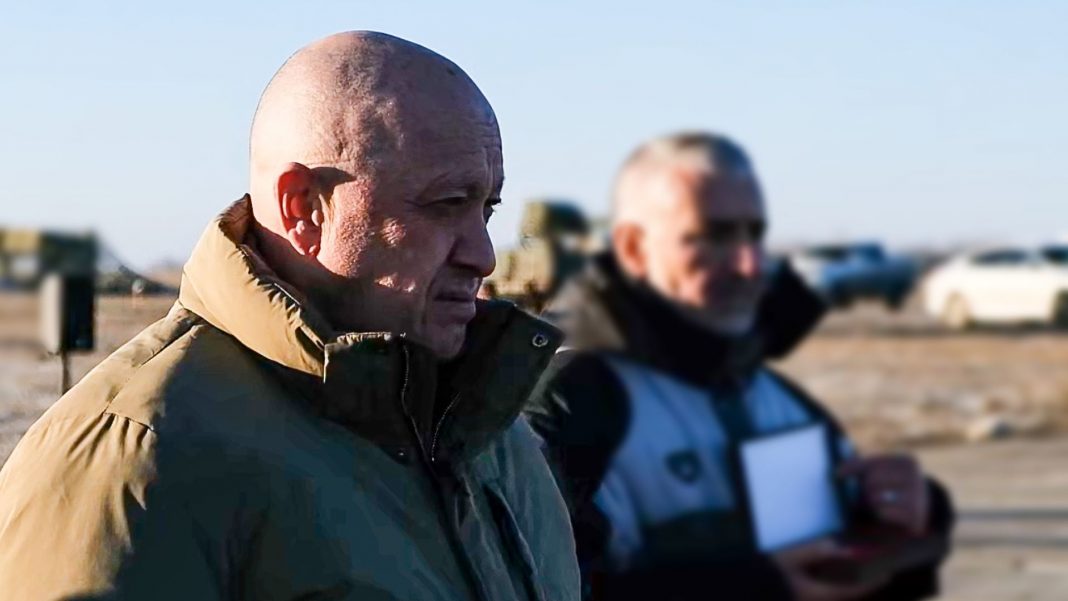As Russia’s war against Ukraine, which Moscow continues to call a special military operation (the “SMO”), becomes increasingly deadlocked and pointless for the Kremlin, fundamental changes are taking place in the ranks of the key players responsible for the conduct of hostilities and their success. In the past few months, the position of Yevgeny Prigozhin has significantly increased in the media space. The curator of the most famous Russian PMC, a major businessman who is close to Putin, has turned into a military leader who single-handedly decides the fate of Russia directly on the battlefield.
Prigozhin is often cited as Putin’s main threat. However, his regular criticism of the military leadership of the Russian Federation is increasingly accompanied by harsh statements about political power, leading many to believe that the main target of Prigozhin’s criticism is the Russian president himself.
Ascolta closely follows Yevgeny Prigozhin’s activation in the media space. In our opinion, this task is a priority in his active public activity. Earlier, we frequently analysed his statements to better understand the functioning of the entire political system in Russia. Despite the increasingly persistent portrayal of “the main threat to the Putin regime” or the leader of the “party of war” that is being covered in the Western media and reports from several think tanks, we continue to view the figure of Yevgeny Prigozhin as part of the Kremlin’s political technology in the run-up to the 2024 presidential election.
For the first time, we put forward this theory back in early April when Prigozhin’s campaign into big politics began. In this material, we only conduct a deeper study of the process designed to convince the general public of the omnipotence of “Putin’s chef.”
This Content Is Only For Subscribers
Why Prigozhin?
During the 15 months of the so-called “SMO”, many Russian politicians, public personas and the military have attempted to lead a conditional “party of war”, uniting the most radical sections of the population around themselves. Long before the start of a full-scale invasion, this role was excellently played by the late Vladimir Zhirinovsky, who actively supported the most extreme scenarios regarding Ukraine. Later, among the most famous contenders for this role, Ramzan Kadyrov, Dmitry Medvedev, Sergei Surovikin, Igor Strelkov, and some other equally odious figures were considered. Moreover, according to Ascolta, at the beginning of 2023, the Kremlin was considering the option of launching a broad media campaign to promote the “head” of the self-proclaimed “DPR” Denis Pushilin, at the all-Russian level, who was supposed to unite, not only the most radical electorate around him but also to raise mobilisation moods in the temporarily occupied territories of Ukraine. The budget for this campaign was estimated at 300 million rubles. True, this idea has not received stupefaction at the highest level.
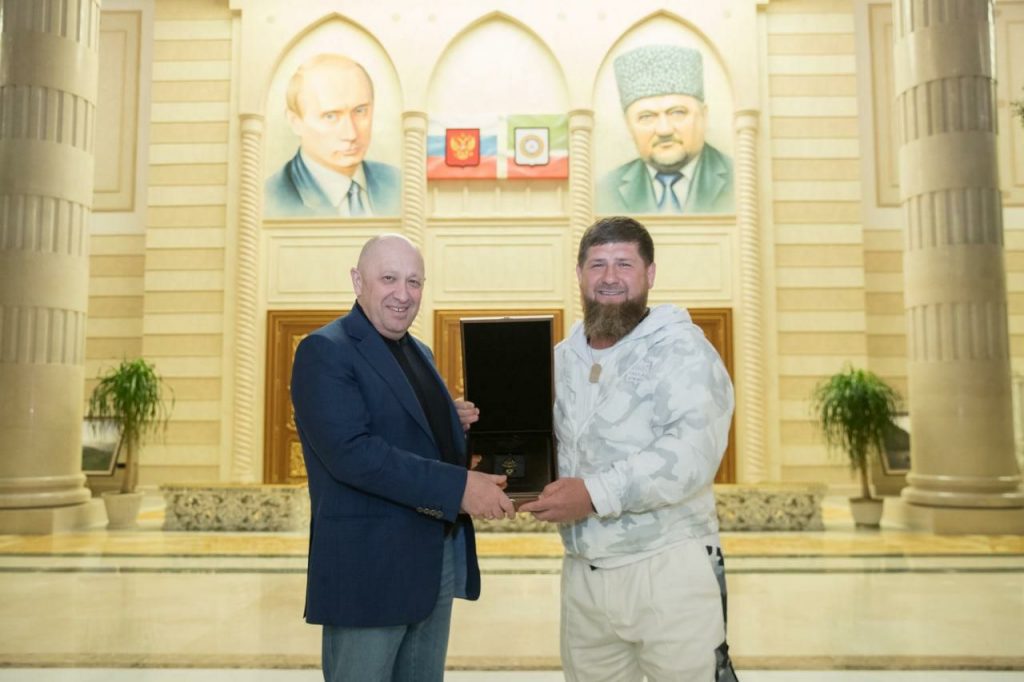
At the same time, with the politicians mentioned above and the military, the figure of Yevgeny Prigozhin began to be promoted. The curator of the most famous and one of the first private military campaigns in Russia, who demonstrated his effectiveness in Syria and several African countries, and is a close associate of Vladimir Putin, Prigozhin became the most suitable candidate for the role of the main executioner and the embodiment of the greatest evil in Russia.
Personal participation in the recruitment of prisoners for severe crimes and regular statements about the need to intensify hostilities not only in Ukraine but also in Europe, harmoniously combined with Prigozhin’s biography, which skillfully highlighted his criminal past, as well as the atrocious crimes of the Wagner PMC in Africa.
Earlier, Ascolta published a detailed biographical portrait of Prigozhin, in which one can trace all the stages of his formation and enter Putin’s inner circle.
By the end of March 2023, many publications appeared in the Western media describing Prigozhin as the most ferocious representative of the “party of war” in Russia. Then, for the general public, he turned from “Putin’s cook” into “Putin’s executioner.”
How is Prigozhin becoming a made-up politician?
On Friday, April 14, Yevgeny Prigozhin, the curator of Wagner PMC, published his article entitled “Only a fair fight: no agreement.” In it, he made a number of relatively strong statements; in particular, he proposed to stop the war in Ukraine, declaring its goals achieved. However, he also said that this war could serve as a prerequisite for the split of Russia. At the same time, many Western and Ukrainian analysts took this material very ambiguously, declaring a de facto change in Prigozhin’s course and his open confrontation with Putin.
In particular, in his article, Prigozhin writes the following:
“The long battle for Bakhmut is extremely beneficial for Russian troops because they already squeezed a large piece of Ukrainian territory in 2022. If the special operation remains within these boundaries, plus or minus a couple of tens of kilometres, then this will solve many problems of the [so-called] SMO.”
“For the authorities and society as a whole today, it is necessary to put some bullet points in the SMO. The ideal option is to announce the end of the SMO, to inform everyone that Russia has achieved the results it planned, and in a sense, we have achieved them. We have ground a huge number of fighters of the Armed Forces of Ukraine, and we can report to ourselves that the tasks of the SMO have been completed.”
“Russia cut off the Sea of Azov and a large piece of the Black Sea, seized a fat part of Ukrainian territory and created a land corridor to Crimea. So now there is only one thing left: to firmly gain a foothold and claw into existing territories.”
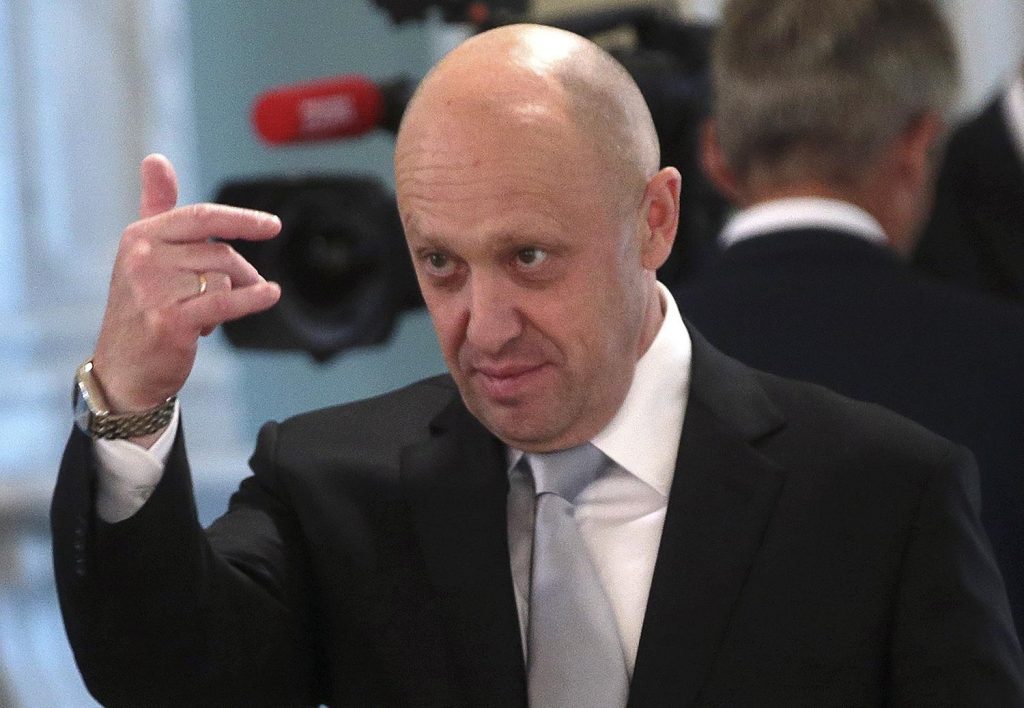
Even though the most discussed thesis from Prigozhin’s article was the call for an end to hostilities and further concentration on the already occupied territories of Ukraine, it is worth highlighting other equally important aspects.
In fact, in this article, Prigozhin, for the first time, acted as a politician offering an alternative point of view and opposing the official line of the Kremlin, which is the need to continue the so-called “SMO”. At the same time, he once again focused on the need to “grind” the Ukrainian military, including in the Bakhmut direction. In fact, for the first time, he publicly announced the need not so much to end the war in Ukraine but to take a break to prepare for more global hostilities that could lead to a direct clash with NATO.
At the same time, he actually points directly to the fact that the current government has played too much in diplomacy, and regular concessions in the future can lead to increased internal confrontation in Russia.
“Party of Peace” vs “Party of War”
In the process of shaping the political image of Prigozhin, the Kremlin began to gradually implement a strategy to shift the focus from Putin as the primary beneficiary of Russia’s war against Ukraine. On April 25, in one of his video messages, the curator of the Wagner PMC stated that he is not part of Putin’s inner circle:
“I will tell you that the rumours about my acquaintance with President Putin are much exaggerated. Of course, I talked with him, but the rumours about our acquaintance were just rumours.”
Many perceived this statement as the beginning of Prigozhin’s independent game, in which he openly opposes not only the Russian Federation’s military leadership but also demonstrates the absence of any interaction with the Kremlin.
It is noteworthy that Putin’s gradual withdrawal from any comments on the course of hostilities in Ukraine coincided with this statement. If earlier the Russian president repeatedly demonstrated his sole leadership of all processes, visiting military bases, holding meetings with the army leadership and making statements on the most resonant events, then since the beginning of May, he has completely disappeared from the news-agenda related to the so-called “SMO”.
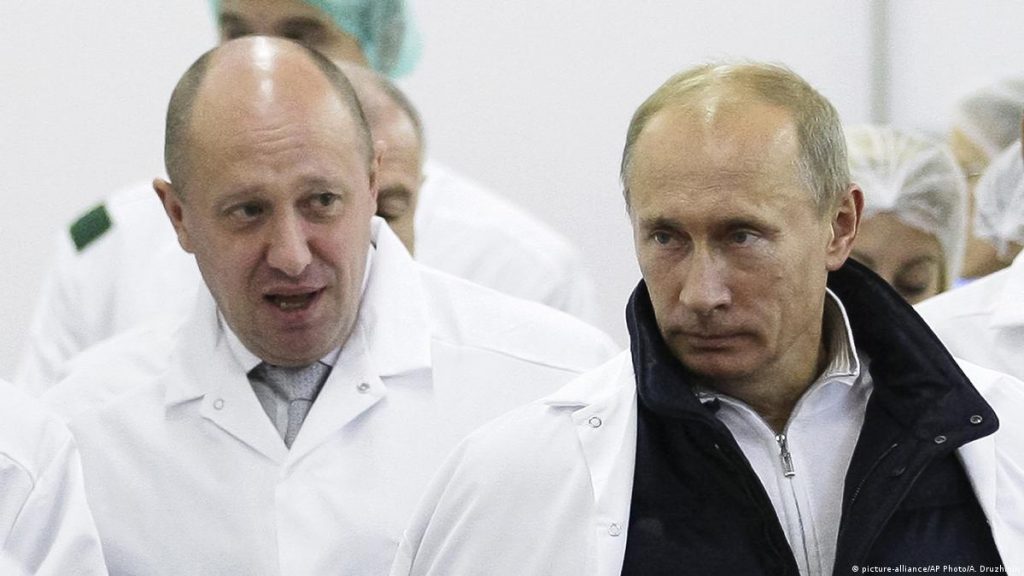
In recent weeks, Putin has focused on domestic political processes, significantly increasing his meetings with regional leaders and state-owned companies. Moreover, even during the Victory Parade on May 9, the familiar “Z” symbols, the official symbol of Russia’s full-scale invasion of Ukraine, were not visible on Red Square.
A similar tactic was also evident in the statements of Putin’s press secretary, Dmitry Peskov. Recently, when answering questions about events in the war zone, he regularly states that the Kremlin does not have such information and that the General Staff or the Ministry of Defense can provide all comments. It is significant that even in the situation with the simultaneous crash of two helicopters and two planes in the Bryansk region (according to Ascolta, this event is the result of a struggle within the military bloc of the Russian Federation), which occurred on May 13, the Kremlin did not release any official statement.
At the same time, accusations of Ukraine carrying out “terrorist acts” against the civilian population have recently become much more frequent in Putin’s rhetoric. Notably, many analysts regard such a narrative of the Russian president as a preparation for changing the format of the so-called “SMO” to an “anti-terrorist operation.”
Such a shift in emphasis should help reinforce the necessary narrative, according to Yevgeny Prigozhin, which is moving to confident leadership in the “party of war”. At the same time, Putin, who advocates for peace and an early cessation of hostilities, leads the “peace party”. And no matter how paradoxical it may sound, the active replication of Prigozhin’s regular statements in the Western media only contributes to forming such a stereotype – that is, it helps to implement the strategy of the Kremlin technologists.
What can such a game lead to?
Each time, Prigozhin’s rhetoric becomes more and more harsh and provocative. He defiantly allows himself open attacks against the Minister of Defense of the Russian Federation, Sergei Shoigu, and the Chief of the General Staff, Valery Gerasimov. Declaring a shortage of shells, he threatens to withdraw his PMC from Bakhmut and leave positions, deliberately exposing the flanks, which he had previously publicly transferred under the responsibility of the Russian Armed Forces. He is not afraid of public conflicts with deputies of the State Duma of the Russian Federation and even makes ambiguous hints about the “grandfather” who makes decisions. He does everything to demonstrate his exclusive independence from everyone, including Putin.
At the same time, several factors still raise doubts about Prigozhin’s sincerity. First, according to the Criminal Code of the Russian Federation, any private military campaigns in Russia remain illegal. And it can hardly be assumed that the conditional Prigozhin can have military equipment, aviation, artillery, an army of many thousands and a regular supply of shells at his disposal without top-level approval. Then, of course, one can consider a situation in which the project of a private army has gone out of control and begun to issue ultimatums to the political leadership. Still, it is worth remembering the history that has repeatedly demonstrated Putin’s ability to eliminate such threats. Especially in wartime. Especially in a war zone.
Secondly, Prigozhin’s mass popularisation does not extend to the federal media. Its main media tools remain its controlled Telegram channels, its pool of war correspondents, and the Western media, which actively pick up every new statement. In this case, we can conclude that such a game is explicitly designed for an external consumer, and the necessary information gets precisely where it is sent.
Thirdly, the main part of Prigozhin’s business empire is concentrated inside Russia. He is noticeably different from most Russian oligarchs, who actively transferred their assets offshore and tried in every possible way to level the risks from excessive government interference in their business. Prigozhin’s main income comes from the Russian budget, which makes him, like the Wagner PMC, dependent on the state (Ascolta previously described in detail schemes that make it possible to receive significant income from the state budget of the Russian Federation). Of course, one can appeal to the presence of Wagner PMC business in Africa and the temporarily occupied territories of Ukraine. Still, it should be considered rather as dividends from the fulfilment of the tasks set rather than the main funding source.
Therefore, Ascolta suggests four options for further scenarios evolution, each of which can be implemented shortly:
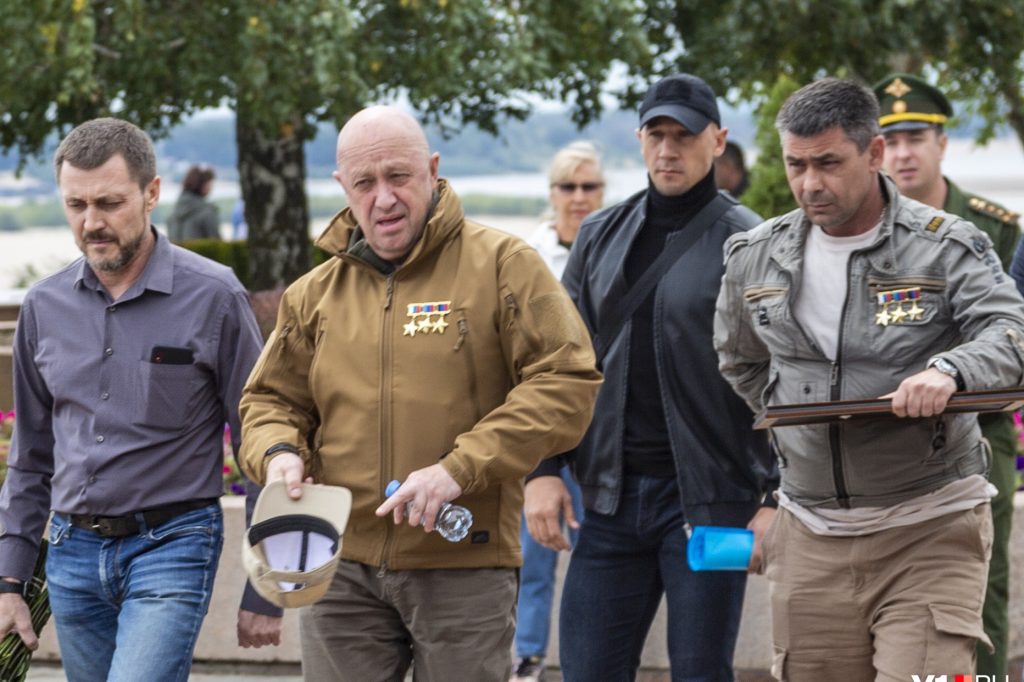
- Prigozhin becomes Putin’s main sparring partner in the 2024 presidential election
Currently, Prigozhin is looking for a reason to move away from the image of a military leader and completely move to the political stage. This option is possible in the event of the complete occupation of Bakhmut or vice versa – the total loss of occupied positions or the Wagner PMC being surrounded by the Ukrainian army. In any case, by the summer, we should expect an increase in Prigozhin’s political statements, leading to his candidacy for local elections in the fall of 2023. He may be able to try his hand at the election of the mayor of Moscow, where he will gain enough votes to enter the second round with Sergei Sobyanin. Such a result will demonstrate to the West the seriousness of its intentions and a relatively high level of support, which will automatically open the way for it to the 2024 presidential election. At the same time, in the presidential elections, he will defiantly act as the “evil” that can come to power in Russia instead of Putin, which will most likely play on Western sentiment.
- Prigozhin will be used for a profound reform of the armed forces of the Russian Federation
If Wagner PMCs can demonstrate significant results on the battlefield and break through the front line soon, their effectiveness will become a direct claim to the leadership of the Russian armed forces. In this situation, we should expect the dismissal of several generals, up to the Minister of Defense of the Russian Federation, Sergei Shoigu. Also, with such a development in the situation, we should expect the legalisation of PMCs in Russian legislation and fundamental reform of the entire armed forces system. In such a case, Prigozhin may take the post of Minister of Defense, and Sergey Surovikin will take the place of Valery Gerasimov.
- Prigozhin’s excessive activity will lead to his return to Africa
Considering the factor of Yevgeny Prigozhin as a controlled technology of the Kremlin, it should be understood that its effectiveness may not be confirmed. The latest events related to the publication in The Washington Post of information about Prigozhin’s ties with the Main Intelligence Directorate of the Ukrainian Defense Ministry may indicate that in his harsh statements, the curator of the Wagner PMC could cross the conditional “red lines” and create real risks for Putin’s ratings in ahead of the presidential elections. In this case, we should expect a gradual decline in the figure of Prigozhin with his further disappearance from the information space. At the same time, one should not forget about the active work of Wagner PMC in a number of African states, where Prigozhin can continue to demonstrate his effectiveness.
- Prigozhin will become “the second Medvedev” for Putin
Considering the political and image consequences of unleashing a war in Ukraine, Putin is aware of the need for a conditional “cleansing” of his reputation. Repeating the “controlled heir” technology can help the Russian president solve two problems at once. First, the Kremlin’s long-standing “threat” that Russia without Putin will be even more aggressive and unpredictable is being fully realised. Including the domestic consumer, who, with the help of the media for nine years, tried to instil the narrative “if not Putin, then it will be like in Ukraine – war, loss of territories and external control.” Secondly, Putin’s temporary departure from big politics can partially whiten his position in front of world politicians. Especially if President Prigozhin deliberately demonstrates even more hostile and aggressive positions towards the West. In this case, Prigozhin’s coming to power justifies several goals from which Putin can benefit significantly.
The above options are only theoretical assumptions, which may vary depending on the circumstances. At the same time, apparently, the further fate of Prigozhin will be decided soon, and by the beginning of summer, we will be able to see him in one of the above-proposed roles.

